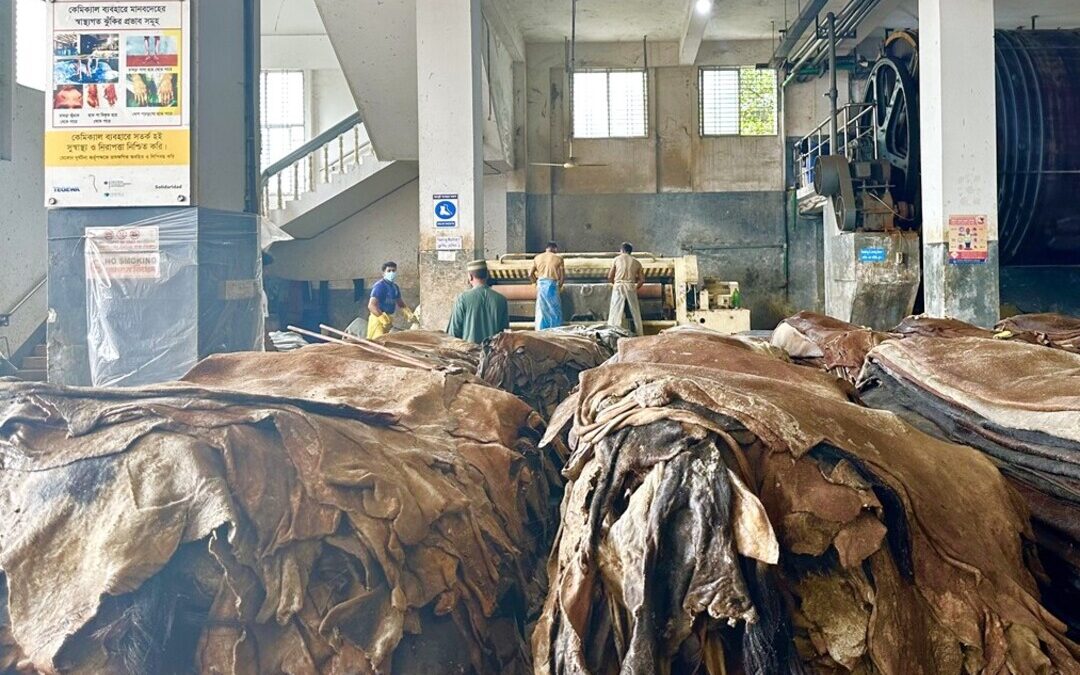Traceability Pilots Drive Fair Trade and Sustainable Development in Global South
Small businesses in the Global South use digital traceability tools to boost fair trade and drive sustainable development.
Small businesses in developing nations are combining traditional methods with new traceability tools to meet trade standards, expand market access and strengthen local economies, according to a new initiative backed by the United Nations.
According to the UN Conference on Trade and Development, the projects also contribute to sustainable development by linking innovation with fair trade.
Leather Industry Adopts Cleaner Methods
At a tannery in Addis Ababa, Ethiopian and Indian researchers are testing enzyme-based methods that replace harmful chemicals. The pilot aims to cut pollution and improve safety while keeping production competitive.
Some 5,000 kilometers away in Pakistan and Bangladesh, hides are tagged digitally at each step of production. The tracking helps prove product standards, reduce waste and demonstrate compliance to buyers.
The work is supported by the Sustainable Manufacturing and Environmental Pollution Programme, run by the UNCTAD and the UK’s Foreign, Commonwealth and Development Office.
Compliance a Key Concern
Leather is Bangladesh’s second largest export sector, crucial as the country prepares to leave the UN’s least developed countries list in 2026. The industry met about 10 percent of global demand in 2020. Yet weak compliance has already cost up to $10 billion in lost exports, said Ebenezer Laryea, who leads the Leathertrace project under SMEP.
“Our pilot is testing how digital traceability with environmental monitoring can show buyers progress and prepare producers for premium markets,” Laryea said.
Textile Waste Becomes a Resource
In Pakistan, where factories generate 1.7 million tonnes of post-industrial waste each year, SMEP supports a digital platform linking waste producers with recyclers. The tool makes production more circular and helps exporters meet the traceability demands of high-value markets.
Meanwhile in Nigeria, women and youth run hubs that collect, sort and manage plastic waste using mobile phones. The hubs provide jobs, safer work conditions and data that inform policy while protecting labor rights in the informal economy.
Redefining Trade for Sustainability
By converting waste into economic value, SMEP projects show how digital transparency can open premium markets for developing nations. At the same time, they make supply chains more inclusive and equitable at home. These approaches underline how sustainable development is increasingly tied to innovation in trade practices.
From leather to textiles to plastics, the pilots demonstrate how producers compete not just on price but also on proof of sustainability. Billions in revenue could depend on this shift, UNCTAD said.
Looking Ahead
UNCTAD will host further discussions at its 16th conference in Geneva from Sept. 20 to 23. The talks, under the theme “Shaping the future: Driving economic transformation for equitable, inclusive and sustainable development,” will explore how trade can better support growth while protecting the planet. Officials stress that sustainable development must remain central to this agenda.
Also Read:
India, UN Launch South-South Cooperation Initiative to Drive SDG Progress
Nirmal Menon
Related posts

Subscribe
Error: Contact form not found.


